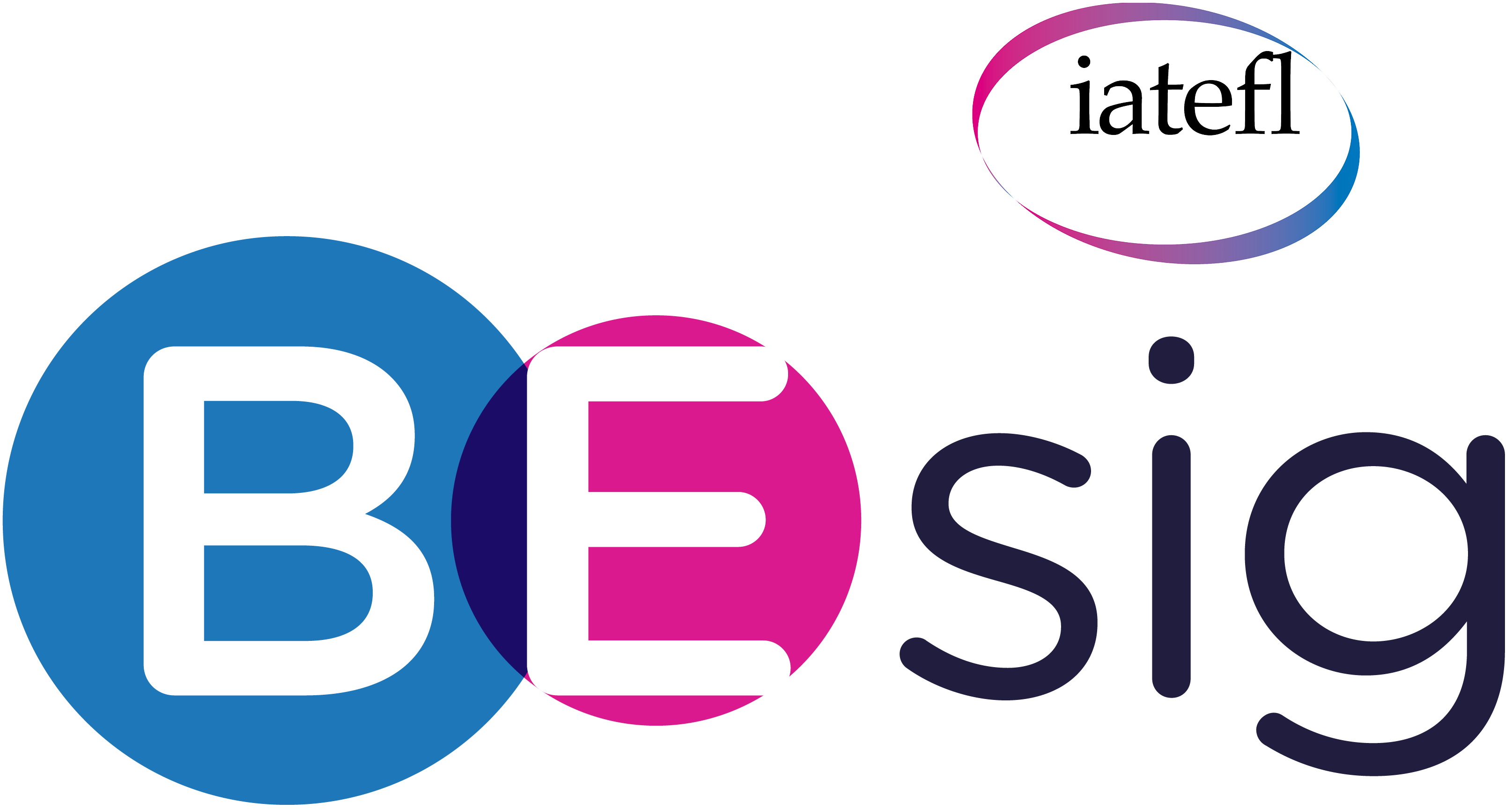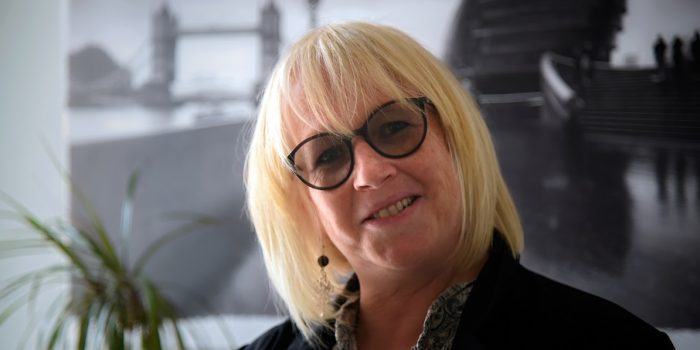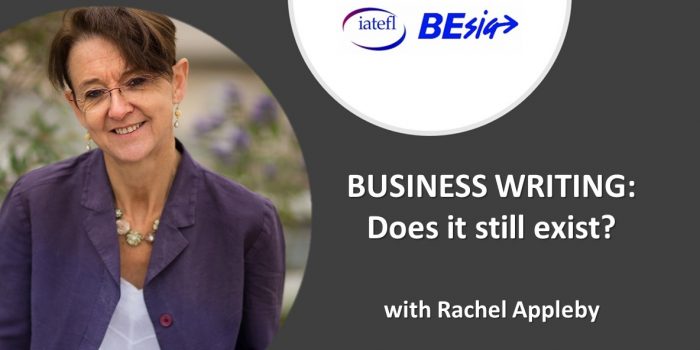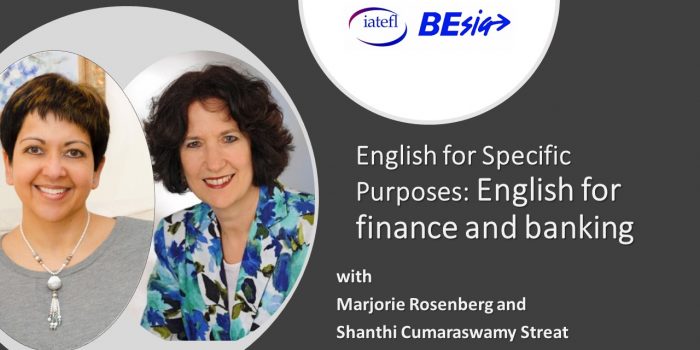
Sherri Williams
This week brings another exciting interview with a engaging member, Sherri Williams. Read on to find out how winning the Marie Keller first-time speaker scholarship impacted Sherri and her BESIG experience, and also about how she uses her professional background and experience in the business English classroom.
Sherri Williams is a freelance Corporate Communications Trainer from the US/Canada now based in Berlin, Germany. Under her brand Global Confidence Corporate Training, http://global-confidence.com/, she specializes in Visual Communication, Sales Training, Presentations Skills and Business English. She is currently using her background in graphic design to develop training materials for her new method of improving speaking skills, known as Visual Springboarding™.
You were awarded the Marie Keller first-time speaker scholarship in 2016, what impact has that had on your professional career?
Speaking at BESIG for the first time in 2016 was a great experience. Before that, I hadn’t really been aware of the benefits of presenting at a conference. As a scholarship recipient, I got a lot of support which not only made me less nervous about my first presentation, but it also helped me get to know some of the BESIG volunteers who later became part of my extended professional network. In addition, for me the biggest benefit of speaking (at any conference) is having a whole roomful of people get to know me and my work and ideas all at once – it’s like power-networking!
What do you enjoy most about being a member of BESIG?
The annual conference is my favorite part of BESIG – I look forward every year to reconnecting with colleagues from all over the world, meeting new ones, and generally having a great time, especially if it takes place in a new city I haven’t been to! But a close second are the online Facebook group discussions – they are very active, with people asking questions and having interesting conversations all the time. It’s a great way to keep in touch with colleagues between conferences and to give and receive professional advice.
Why did you get into business English training?
I got into English training in general because I had tried many different jobs (graphic design, youth work, administration, etc.) but none of them were quite the right fit for my skills and interests. I had a brief student job teaching English during my university time, but had been completely unprepared and found the job stressful. About 10 years later, I decided I really did want to teach, I just needed to be prepared for it, so I took a CELTA course. Shortly after that I moved to Berlin, where I couldn’t find any work in language schools due to the huge numbers of English speakers who come here looking for work. I joined ELTABB (our local English teachers’ association) and met someone who suggested I give Business English agencies a try. I found some contracts that way, and just ended up staying in the Business English field after that!
What has been your most interesting class?
I love the variety of jobs and industries I get an insider’s look into in this profession, but probably the most interesting has been teaching the heads of two power plants in Germany who need to give tours of the facilities to English-speaking visitors. I got to do several private tours of the plants as well as an open-cast mine with them, including a ride in a massive digger machine, which certainly isn’t part of the regular visitor’s tour!
What challenges have you faced in your career so far? How have you overcome them?
I think the biggest challenge I’ve faced as a freelance English trainer in Germany has been being paid a proper amount for the time and effort that goes into each hour of teaching, since travel, prep and administration time aren’t usually included in the price. I’ve found that getting away from strictly language courses and moving more into business skills taught in English (such as presentation skills courses, intercultural training, or communication coaching) tends to get a higher hourly price. The only problem is finding these better contracts! Connecting with other trainers already doing this kind of training and asking them how they got started has helped me so far.
What is your current focus or current projects you’re working on?
Since I am preparing to go on maternity leave soon (very excited!), I am focusing right now on setting up a foundation for my newest project, a new method of training speaking skills. The benefit of a visual planning sheet is that you take less notes and rely on the visual information to jog your memory and provide structure, so the resulting language is more natural and spontaneous – in essence, you are describing a picture rather than reading written notes as you speak. I’m happy that I have finally found a way to combine my art background with language training in this new method. Right now, I’d love for some teachers to try out the springboards with their students and give me feedback on how they like them, and what other topics they would like to see me make.
What advice would you give to someone just entering the field of English teaching?
I would say network with other trainers as much as you can! They are a great resource for virtually everything you need: advice on the teaching challenges you face, suggestions for great materials to use, even referrals for courses or clients. I still get about 90% of my teaching jobs through the network of trainers in my local teaching association. And networking is also great for career development when you’re not sure what step to take next – just look for people doing what you want to eventually be doing and ask them how they got there!
If you would like to be interviewed and featured on the BESIG blog, send an email to Mandy at [email protected].
Questions and editing by Mandy Welfare
11th August 2019
MEET A MEMBER is available to IATEFL BESIG members and non-members alike but only features our current members. Another reason to join us and “BE with BESIG.”



